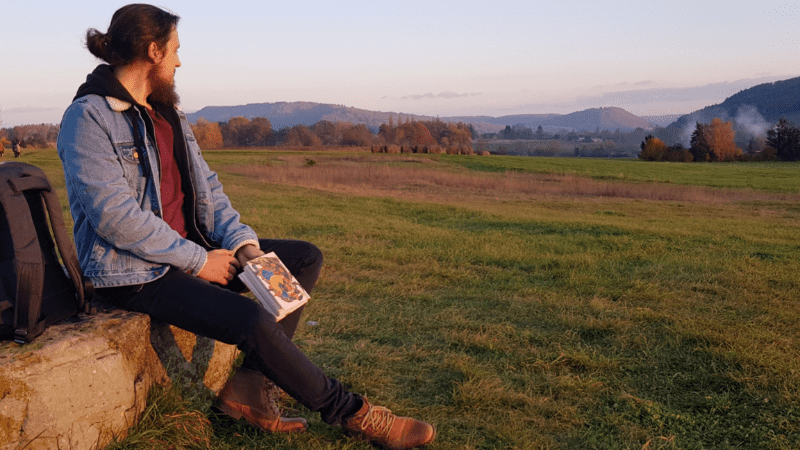Not Wanting to Force Things: Wu-Wei and Other Far Eastern Approaches
Far Eastern philosophies often contain concepts of not forcing, staying flexible and not stiffening. People who have grown up in the West often have a hard time with these. Our cultural way of thinking and seeing things is too different. But there is a lot of potential in these.
In this article, we'll take a closer look at where these concepts appear, how to understand them, and how we can benefit from them - if only we take them to heart.
Now then...
In most Western cultures, there is somehow an expectation that everything is based on a certain plan that is followed. This is directed towards a goal that must be achieved at all costs.
In many Far Eastern philosophies this is not so. Such a creationism, as it is also found in most western religions, does not exist for example in Daoism or Zen Buddhism.
How does it go then?
In most Far Eastern philosophies, you look at things as happening from within themselves. Sounds confusing?
If so, this is not surprising. After all, it is pretty much the exact opposite of the creationism mentioned above.
The best way to explain the whole thing is with some organic things. Therefore, already very briefly a few examples:
If you look at a flower, it simply grows before itself. Without you having to tell it that you should.
The same is true for a tree. You don't tell the tree where to grow a branch or where it needs leaves. These things of the tree are standing from the tree itself. And they are good as they are.
So it doesn't take a great architect to make things happen or to achieve something specific.
You may just find that this way of seeing things is much more relaxed than being fixed on a goal or intention.
And that's the point: he simply enjoys the process, as will be able to enjoy in all cases. On the other hand, those who are after goal or intention will experience a lot of disappointment even with a high success rate.
The mythical founder of Taoism, Lao Tzu wrote this down hundreds of years ago:
“A good traveler has no fixed plans and is not intent on arriving.”
Lao Tzu / Lao Tzu
But he was not the only one with it and one finds this view of the things in many places. Like e.g.:
"Since I don't have a goal, I'm never lost."
Ikkyu
Thus, one of the most powerful tools is one that you don't use for a purpose.
Again, this can seem very contradictory for people from Western cultures. What is meant is to simply let things come to you and then act.
Wu-wei is often referred to here. This term is documented for the first time in the Daodejing. But it could also be older.
Here, the focus is especially not only to want to force, but also not to act against nature.
A striking example in this regard, is the following:
Imagine you are standing in a garden and want to grow something (be it flowers, vegetables or whatever else comes to mind).
You start digging up one of the beds, maybe enrich it with some fertilizer and then make some furrows in which you put the seeds.
You finally get the hose and water the bed.
And now is the time for things to take their course. You have to wait and it does not accelerate growth in any way if you stand next to the bed and frantically focus on the seed.
Instead, you are much better off sitting under a shady tree and recovering from your exertions or pursuing other activities.
This example makes sense to most people I've told. No one would say that the spasmodic standing next to the bed would be useful.
But we often behave in the same way with other things in life.
- You gave it your all and handed in your exam?
- You do a meticulous job every day?
Then everything is all right. You don't have to get hung up on what your actions will bring. It will all unfold in its own time.
If you stay flexible, it doesn't matter what events will occur. The exam went worse than expected and you have to repeat the course or take a new path? Or it went much better than expected and you are offered a scholarship you didn't even know existed?
Your diligence at work is not appreciated? Or it was so well received that you are suddenly offered a higher position that will turn your whole life upside down?
You're only disappointed or surprised if you were stiffed on the goal.
Take the opportunity and I just sit back and see what happens.
Alan Watts described it this way:
"A person who rows a boat is using effort. But a man who is using a sail... He is using magic. He lets nature do it for him. With the intelligence to use a sail."
Do like the person with the sail and let yourself drift with the wind instead of wasting your energy on stubbornly rowing towards a goal that is considered important - we don't have the complete overview of the thing to say what is a good and what is a bad goal.







